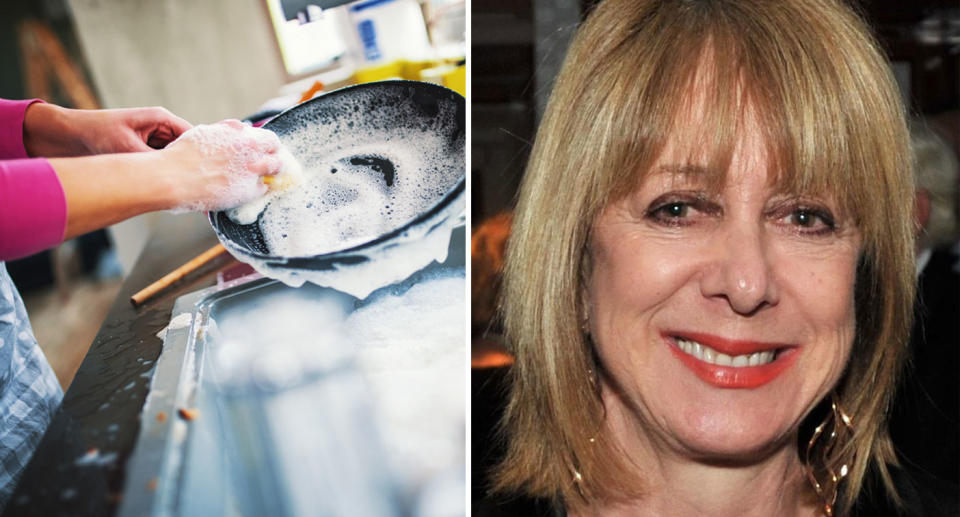'Truly disgusting': The mistake you're making with the washing up
The kitchen can very quickly become a breeding ground for potentially harmful bacteria, but there’s one item that retains a particularly grotesque amount of germs.
Single rectangular sponges should be avoided at all costs, Professor Marylouise McLaws, a germ and hygiene expert at the University of New South Wales, told Yahoo News Australia.
They absorb and preserve bacteria through water and surfaces they come in contact with, making them the most “truly disgusting” item in the kitchen.
Professor McLaws urged the public not to use sponges at all, and most certainly not to use the same one for prolonged periods of time.

“They are truly disgusting. I recommend people don’t use them at all,” Professor McLaws said.
“Those sponges are full of water and can contain bacteria that can cause an upset stomach. A small amount of that bacteria in the water can give it the perfect environment to breed in.”
A “perfect storm” can occur when a sponge is taken to a kitchen bench already contaminated by a plethora of germs from bags, animals, backpacks and other outside items.
“I dislike them intensely. They could be used on the floor, but should certainly never be used on dishes after that,” Professor McLaws said.

She encouraged people to instead use paper towels to wipe down the kitchen bench, with either soapy water or an alcohol-based or mild bleach spray.
“You have no idea if the cat has jumped up on it, and what kind of things are being brought in on the bottom of shopping bags,” she said.
Professor McLaws said it was important to take the same approach to cleaning up after a meal, and also use paper towels on high-touch areas.
“These include places like the fridge handle, the dishwasher and other nobs and handles that are used frequently by multiple people,” she said.
While Professor McLaws encouraged people to let their dishes dry naturally, she said if a tea towel must be used, it should be washed at the end of every day.

There should also be a separate tea towel used for dishes and to dry hands - when the same one is used for everything, germs and bacteria can be spread rapidly.
“Viruses and bacteria can just sit on tea towels. Households wanting to cut down on sick days should use a different towel for hands and dishes,” Professor McLaws said.
When it comes to the bathroom, towels can last a little longer before being washed because they are normally kept separately and not shared.
Professor McLaws said unless multiple people were using a towel, they would only need to be washed once a week.
Do you have a story tip? Email: newsroomau@yahoonews.com.
You can also follow us on Facebook, download the Yahoo News app from iTunes or Google Play and stay up to date with the latest news with Yahoo’s daily newsletter. Sign up here.

